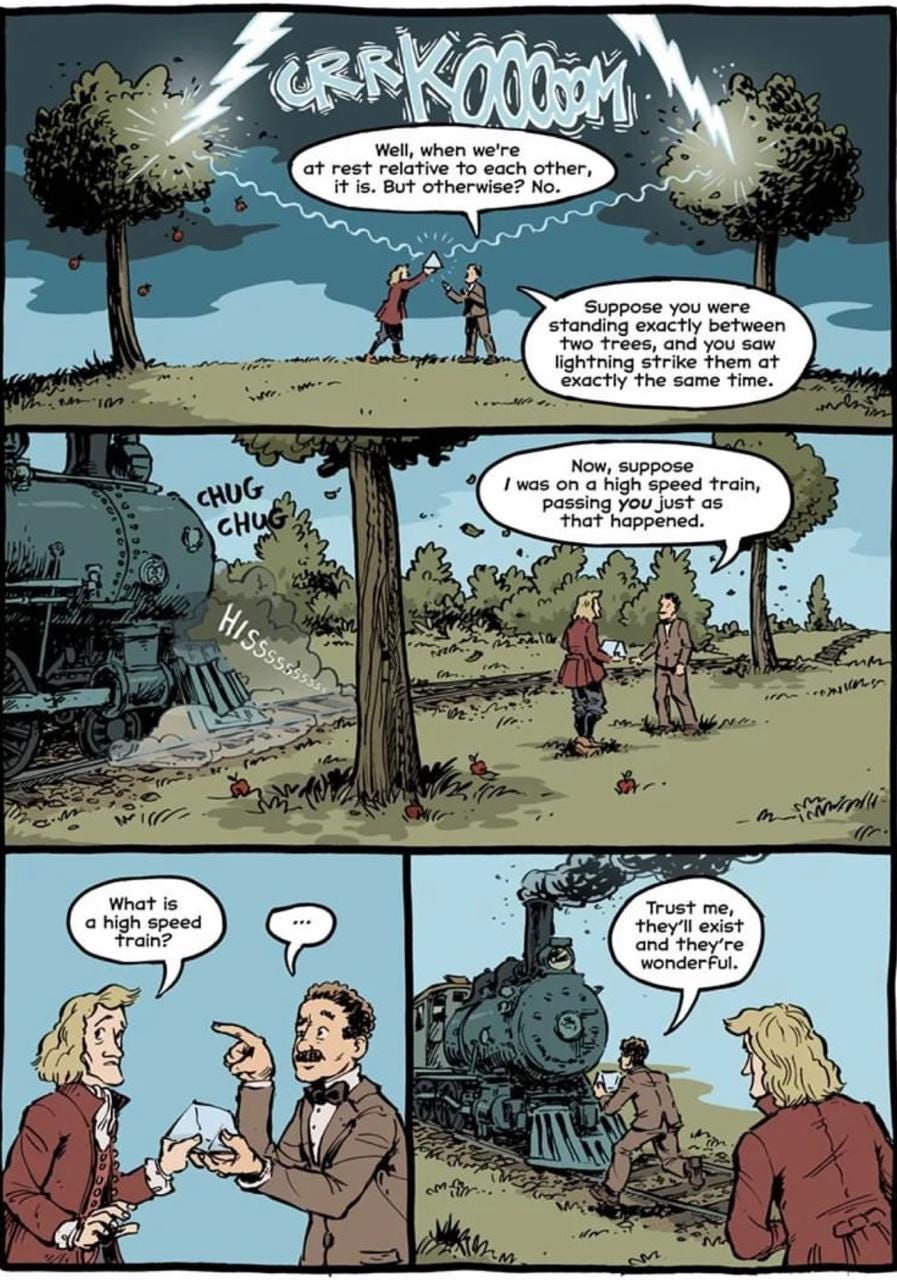When I can, I make this same half-joke about how time isn't real.
G enters the meeting late.
G: Sorry I'm late, folks, I was writing an email and lost track of time.
Me: It's okay, G. Time isn't real.
*crickets*
We're at a bar and having a few drinks. One of those vapid nights out.
Y: Shit, what time is it? I have an early start tomorrow.
Me: Time isn't real, but my phone says it is 9.17 PM
Y has had enough. They gather their belongings and leave immediately.
When I say that time isn't real, I'm partly trying to be clever and cool. But I'm also trying to make an Albert Camus-inspired existential, derisive observation about the false linearity that we accord to our days.
Time is the dominant organizing force in our lives. It is the primary medium through which change and growth are perceived and measured.
It's why Naval Ravikant and his adjacents say aphorisms like this:
And it is why our whole lives as regular people are tied to this mythical future time when all our desires, potentials, and dreams will be realized.
My friend K flew back from New York to Delhi some weeks ago. "I didn't get to experience Saturday!"
That's because Saturdays and calendars are only a concept.

Some very strange YouTube videos have brought to my attention that physicists have discovered many things about time this past century that modern society hasn't entirely internalized.
Amongst the hard facts they've uncovered are the following:
The idea of a separate past, present, and future are manmade conceptions.
The passage of time is a felt experience. Its passage feels softer in Bali than in Bangalore. One minute feels like an eternity when we're waiting for an Uber or have to wait our turn to pee. And even hours feel like minutes when we're experiencing flow state.
Time dilates.
Newton saw time as a straight line. It was linear and unaffected by anything happening around it - and this was consistent with how society relates with time.
Einstein's discoveries disrupted this understanding. He thought of time as tangled up with space, part of a bigger thing called spacetime. This mix means time can stretch or squeeze, change its pace with speed and gravity.
Einstein’s view of time turned the world upside down. But it is so abstract, that no one really understands it. It’s why movies like Interstellar and Arrival are hard to follow.
And so it makes sense that we've mostly stuck to the old path in how we think about time. We haven’t considered whether thinking of time as a deterministic paradigm serves us.
And we haven't quite grappled with what this means about how we think about things like ageing, growth, progress and accumulation.
What we can assume safely, is that this thing about time is at the edge of the limits of our understanding of reality and how it functions. We’ll probably never get it, and maybe that’s by design.



Loved it! I think about this quite often. Time is something that fascinates me, scares me and confounds me. The idea that time is just entropy is both mind opening and choatic. Time didn't exist before the big bang breaks my brain. I had written about it in the past one of which was after watching Tenet: https://tyagarajan.substack.com/p/its-time-again?utm_source=%2Fsearch%2Ftenet&utm_medium=reader2
For one, literally every movie plays on time in some way or the other. Chris Nolan is more on the nose. But more interestingly watching a movie in a movie theatre itself is a unique space-time experience that is rare these days. A whole group of people are allowed to experience time in different ways at the same time. Yada yada. this is a topic I can geek on for hours.
time is real, and also everything you described. Living in the moment is a bit tough between centrifugal force and creeping normality.